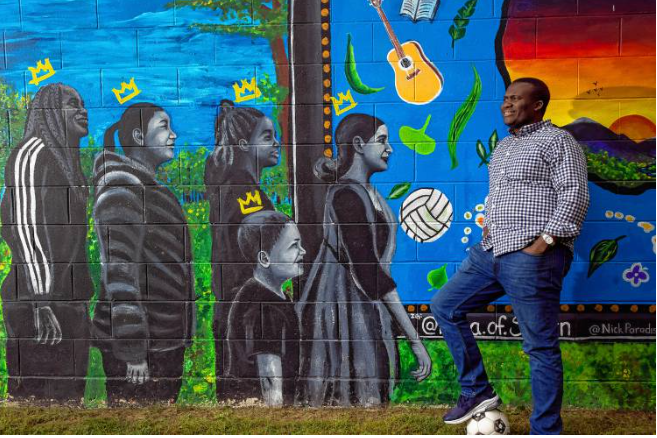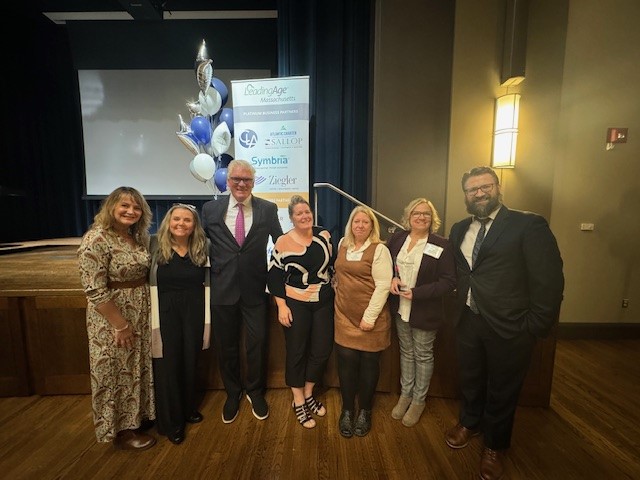Article originally appeared in the Concord Monitor
“Jean Hakuzimana describes himself as a man who wears many hats – father of four, founder and director of his own organization, state director of Ascentria Care Alliance’s Services for New Americans, journalist by training, New Hampshire resident, and more.
Growing up in Rwanda then moving to the U.S. in 2018, Hakuzimana has experienced firsthand the struggles facing new Americans. Over the past six years, he has dedicated himself to making the community more welcoming to New Americans both through his day job at Ascentria and at NH Songa, the organization he created to help immigrants in the workforce.
“I keep feeling like I have a job to do in New Hampshire. I know for many people, the conversation around immigrants is tough nowadays,” Hakuzimana said. “Many people do not like to associate with them, but the reality is they are making the economy of New Hampshire, of America, move forward.”
NH’s Songa derives its name from the Swahili word meaning “to move.” Through what he calls “Moving Together Conversations,” Hakuzimana hopes different sectors and leaders in the workforce can better understand and support New Americans.
“I feel that two communities connected by immigration and hospitality would need to find a way to move together for a common destiny,” he said.
Through its inaugural Immigrants in the New Hampshire Workforce Conference last November, NH Songa brought together company leaders, human resource officers, nonprofit organizations, local and state officials, service providers, academic institutions, employment agencies, and New Americans for a day centered around conversation, information, education, and engagement.
The conference explored the landscape of immigrants coming to New Hampshire, where they come from, what they do once they arrive, how they contribute to the economy, what role they play in the workforce, struggles they face in seeking employment, obstacles they navigate once employed, and ways workplaces can become more supportive environments.
“When I came to New Hampshire, I had challenges to connect to the employment side. I had challenges to know what to do, to know where to go, to learn the complexity of American life for an external person who’s arriving,” he said. “So from that experience, from how I managed it, from how many friends came to help, from how different organizations helped me, I believe that I can be a source of inspiring others, educating others, advocating for the wellness of this community.”
In Rwanda, Hakuzimana studied journalism and communications. He also worked as a communications specialist for the United Nations Development Program in Chad. Upon arriving in New Hampshire, he had to wait over a year for a work permit and found that the jobs available to him required manual labor rather than aligning with his previous experiences. He describes this time as “mentally draining” and “full of discouragement.” Thanks to a friend, he began working at a concrete manufacturing company, leaving him physically exhausted but glad for the employment. Then, he transitioned to working nights at Crotched Mountain Foundation and days at Ascentria while also pursuing a graduate degree in community development policy from the University of New Hampshire.
“I started feeling good when I saw an office when I saw a computer, when I saw Outlook opening,” Hakuzimana said of getting back into work similar to what he did before immigrating. “I thought, ‘Maybe I’m back to normal.’ That was my thing. I was like, ‘This is closer to what I used to do.’ So at least that gave me another level of confidence that things can work, but it doesn’t take away the challenges that people are facing.”
Having experienced these challenges firsthand, he wants this year’s Immigrants in New Hampshire’s Workforce Conference to examine solutions and provide constructive means of moving forward together. This year, Hakuzimana hopes more New Americans will attend, connect with resources, share their stories with other attendees, and help puncture preconceived notions.
The conference this year will feature several breakout sessions, panels, and many opportunities to build connections.
“There are many ways our New Hampshire residents can look at New Americans as contributing factors, not as dismaying or destroying factors. I’m always interested in talking about this, educating about this, and I ask people to learn. I am humbly requesting people to have an open mindset and learn,” Hakuzimana said.
Hakuzimana recalls once going to a Dunkin’ drive thru and ordering a cafe latte. The worker taking orders did not understand him and eventually asked him to order instead at the window. After giving him the coffee, the worker said, “What are you doing here?” The experience stuck out to him as an example of the work that needs to be done to make the community more welcoming.
He says many people don’t understand the role New Americans play in society. Over half of the New Americans residing in New Hampshire are naturalized citizens, according to NH Songa’swebsite. Across the state, over 6% of self-employed business owners are New Americans generating more than $154 million in annual revenues. He hopes the conference will continue to shine light on the positive impacts of New Americans.
President of NHTI Patrick Tompkins attended the conference last year and will lead a breakout session on education this year. He explained that many NHTI students belong to the New American community, and that education provides a key component in preparing them to enter the workforce.
As soon as he heard about the conference, Tompkins knew he wanted to attend.
“I’m a resident of Concord. I live in this city. I learned more about the New American community and their role and the challenges that they face and the successes that they achieve,” he said. “As president of NHTI, our mission is to serve the Concord community, and New Americans are part of that community. When we serve them, we serve Concord and we serve New Hampshire.”
He admires Hakuzimana’s dedication to empowering others.
“He’s helping two groups of people,” Tompkins said. “He’s helping his community of New Americans, but he also has a passion for Concord.”
Hakuzimana’s community involvement extends beyond NH Songa and Ascentria. He belongs to the Greater Concord Leadership Class of 2024 and joined the city’s Economic Advisory Committee at Mayor Byron Champlin’s request.
He sees the love in the Concord community and wants to challenge people to continue learning and growing together.
“I think New Hampshire is a good state to keep exploring being welcoming to refugees and New Americans from around the world,” he said. “New Hampshire can keep learning why people come here, what are the reasons behind people coming here. I think that can tell us more or teach more as we want to be more welcoming.”
This year’s Immigrants in New Hampshire’s Workforce Conference will take place on Nov. 20. For more information, visit nhsonga.com.”






